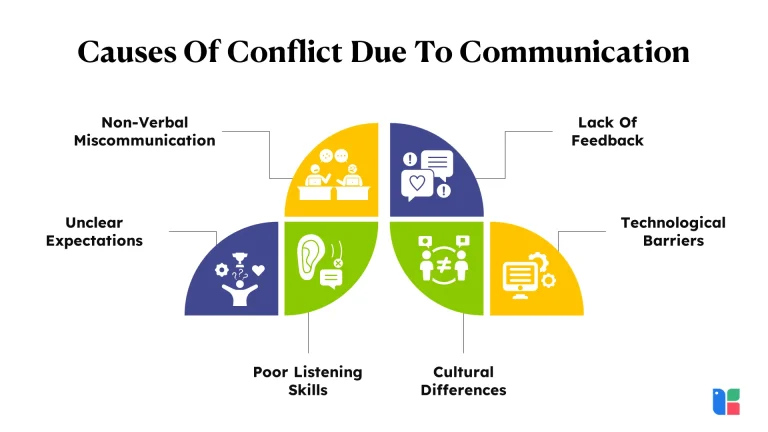How Important is Speech Style?
Speech style is extremely important as it influences how effective and persuasive our communication is. The way we choose our words, tone, and delivery can significantly impact the listener’s understanding, engagement, and perception of our message.
Whether it is a formal presentation, a casual conversation, or a written piece, the speech style we employ can shape the overall impression and reception of our content. A well-crafted speech style not only conveys our ideas clearly but also enhances our credibility and adds a personal touch to our communication.
It allows us to connect with our audience, establish rapport, and effectively express our thoughts and emotions. Mastering the art of speech style is essential for anyone who aims to be a persuasive communicator and an influential speaker.
The Impact Of Speech Style
Speech style plays a vital role in communication, influencing the way ideas are conveyed and received. It shapes perceptions, creates connections, and can leave a lasting impact on listeners, highlighting the importance of effective speech delivery.
Speech style plays a significant role in our daily interactions, whether we realize it or not. The way we communicate through words and the tone we use can have a profound impact on various aspects of our lives. From the power of verbal communication to its influence on relationships, and even the impression it leaves on our professional success, speech style truly holds immense importance.
The Power Of Verbal Communication
Verbal communication, the expression of thoughts and ideas through spoken language, has the power to shape our interactions and convey our intentions. The words we choose, the clarity of our speech, and the confidence with which we deliver our message can greatly influence how effectively we communicate and connect with others. Effective verbal communication is a valuable asset that allows us to express ourselves, engage in meaningful conversations, and establish connections that can foster growth and understanding.
Influence On Relationships
The way we speak can greatly impact our relationships – be it with our partners, friends, or colleagues. The tone, pitch, and cadence of our speech have the ability to convey our emotions, intentions, and attitudes. By adopting a warm and empathetic speech style, we can create a more positive and inviting atmosphere, which can strengthen our connections and foster deeper, more meaningful relationships. On the other hand, a harsh or dismissive speech style can drive a wedge between individuals and lead to misunderstandings, conflicts, and strained relationships.
Impression On Professional Success
Speech style is a crucial factor when it comes to professional success. How we articulate our thoughts and ideas can significantly impact how we are perceived in the workplace. Clear and confident communication can enhance our leadership skills, influence our colleagues, and improve our chances of success. Additionally, a professional speech style, which includes using appropriate industry-specific jargon and maintaining a respectful tone, can help us make a positive impression during job interviews, presentations, and meetings. It showcases our professionalism, competence, and ability to effectively convey our expertise to others, leaving a lasting impression on employers and clients alike.
Different Speech Styles
Speech style plays a crucial role in communication, impacting how messages are received and understood. The way we speak, including our tone, vocabulary, and delivery, can influence the effectiveness of our interactions and connections with others. From assertive to persuasive, the speech style we adopt can greatly impact our ability to convey our thoughts and ideas successfully.
Understanding the importance of speech style is crucial for effective communication. The way we speak can significantly impact how our message is received and understood by others. Different situations require different speech styles, and it is essential to adapt accordingly. In this article, we will explore various speech styles, including formal and informal speech, direct and indirect communication, as well as assertive, aggressive, and passive speech styles. Let’s dive in and explore the significant features of each style.
Formal And Informal Speech
Formal speech is used in professional settings, official events, or when addressing individuals of higher authority. It requires adhering to specific rules and conventions, such as using proper grammar, avoiding colloquial language, and maintaining a respectful tone. Formal speech is characterized by using complete sentences, specific vocabulary, and professional jargon when appropriate.
On the other hand, informal speech is more relaxed and casual. It is commonly used in social settings, among friends, or when engaging in casual conversations. Informal speech allows for a more conversational tone, the use of slang, contractions, and a friendly demeanor. It enables individuals to connect on a personal level and establish a sense of familiarity.
Direct And Indirect Communication
Direct communication aims to be clear and explicit in conveying the intended message. It leaves no room for misinterpretation as it relies on straightforward and concise statements. Direct communication is valuable in situations that require immediate and decisive action, such as emergency scenarios or giving precise instructions.
Conversely, indirect communication uses subtle cues, implications, or non-verbal signals to convey messages indirectly. This style is often employed in diplomatic situations, when addressing sensitive topics, or in cultures that value implicit communication. Indirect communication allows for more nuance and may require individuals to read between the lines to fully grasp the message.
Assertive, Aggressive, And Passive Speech
The way we express ourselves can also be categorized into three distinct speech styles: assertive, aggressive, and passive.
- Assertive speech is confident and self-assured. It involves expressing thoughts and opinions clearly, while respecting the rights and beliefs of others. An assertive speaker demonstrates openness to dialogue and is not afraid to disagree constructively or set boundaries.
- Aggressive speech, on the other hand, tends to be forceful, confrontational, and hostile. It disregards the rights and perspectives of others, often seeking to dominate or intimidate. Aggressive speech can create tension and hinder effective communication, as it focuses more on asserting power than understanding.
- Passive speech, sometimes known as passive-aggressive, tends to avoid conflicts or confrontations by acquiescing to others’ desires without fully expressing personal opinions or needs. This speech style often manifests as subtle sarcasm, silent treatment, or non-participation. Passive speech can hinder open dialogue and may lead to misunderstandings or unaddressed issues.
In conclusion, speech style plays a vital role in our daily interactions, whether it be in professional settings or personal relationships. Adapting our speech style to the situation and audience is crucial for effective communication. By being aware of the distinctions between formal and informal speech, direct and indirect communication, as well as assertive, aggressive, and passive speech, we can improve our ability to convey messages clearly and ensure a mutual understanding between individuals.
The Role Of Speech Style In Personal Life
Speech style plays a vital role in personal life by shaping how others perceive and interpret our communication. It can impact relationships, credibility, and overall impression, emphasizing the importance of choosing our words carefully.
Effective Communication In Relationships
Speech style plays a crucial role in our personal lives, especially when it comes to maintaining healthy relationships. Effective communication is the foundation of any successful relationship, be it romantic, familial, or friendship. It helps us express our thoughts, feelings, and desires clearly and openly. When we use an appropriate speech style, we can effectively convey our message, ensuring better understanding and connection with others.Conflict Resolution And Decision Making
In times of conflict, the way we communicate can either exacerbate the situation or lead to a resolution. The speech style we adopt greatly influences how conflicts are handled and decisions are made. By utilizing a calm, respectful, and empathetic speech style, we create an environment where conflicts can be addressed constructively. This style promotes active listening, understanding, and finding common ground, ultimately leading to successful conflict resolution and informed decision-making.Implications On Family Dynamics
Family dynamics are deeply impacted by the speech styles used within the household. The way family members communicate with one another can shape the overall atmosphere and relationships within the family. Cultivating an open and supportive speech style encourages family members to share their thoughts and feelings without fear of judgment or rejection. This fosters trust, strengthens bonds, and promotes a healthy and harmonious family dynamic. Some ways in which speech style affects family dynamics include:- Creating an atmosphere of respect and validation
- Encouraging open and honest communication
- Empowering children to express themselves
- Reducing misunderstandings and conflicts

Credit: slideplayer.com
The Role Of Speech Style In Professional Life
The Role of Speech Style in Professional Life
In the professional world, speech style plays a crucial role in determining one’s success. It goes beyond mere words and encompasses the tone, mannerisms, and delivery of information. Your speech style reflects your personality and leaves a lasting impression on others. Whether you are a leader, a job seeker, or a team player, mastering the art of effective communication can open doors of opportunity and elevate your professional standing.
Leadership And Management
Your leadership and management skills heavily rely on your speech style. As a leader, your ability to articulate ideas, motivate your team, and inspire action is paramount. A confident and authoritative speech style can command attention and respect from your subordinates. By presenting yourself as a persuasive communicator, you can influence others to share your vision and drive your team towards success.
Interviews And Job Networking
In the competitive landscape of job interviews and networking events, your speech style can make or break opportunities. Your interview success hinges on delivering concise and impactful answers. Adopting a confident and engaging speech style can showcase your ability to communicate effectively and leave a positive impression on potential employers. Networking also requires effective communication skills, as you need to engage with others and present yourself in a memorable way to create valuable professional connections.
Effective Teamwork And Collaboration
Successful collaboration heavily relies on clear and productive communication among team members. Your speech style impacts the efficiency of teamwork and collaboration by promoting effective information exchange, active listening, and conflict resolution. A respectful and inclusive speech style can foster trust and enhance team dynamics, resulting in improved productivity and successful project outcomes.
Developing And Improving Speech Style
Developing and Improving Speech Style is crucial for effective communication. Our speech style plays a significant role in conveying our thoughts, ideas, and emotions. It encompasses not only the words we choose but also the way we deliver them. By developing a more polished speech style, we can enhance our communication skills and establish better connections with others.
Active Listening And Empathy
Active listening and empathy are vital components of developing an effective speech style. When engaged in a conversation, it’s crucial to actively listen to the speaker and try to understand their perspective. By doing so, we not only show respect but also gain valuable insights, which enables us to respond thoughtfully and appropriately.
Empathy plays an equally important role. It allows us to put ourselves in the other person’s shoes and understand their emotions and experiences. By demonstrating empathy in our speech style, we create a safe and supportive environment that promotes open and honest communication.
Effective Body Language
Body language can significantly impact how our speechstyle is perceived by others. Non-verbal cues such as facial expressions, hand gestures, and posture can either enhance or hinder communication. To improve our speech style, we must pay attention to our body language and ensure it aligns with our words.
It’s essential to maintain open and attentive body posture, make eye contact, and use appropriate hand gestures to emphasize key points. By consciously practicing effective body language, we can convey confidence, credibility, and engagement, which in turn enhances our speech style.
Practicing Assertiveness
Assertiveness is a crucial aspect of an effective speech style. It allows us to express ourselves clearly, confidently, and respectfully. By practicing assertiveness, we can communicate our thoughts and opinions directly without being aggressive or passive.
To enhance our assertiveness, we must focus on using clear and concise language, avoiding vague or ambiguous statements. Additionally, maintaining a calm and composed tone, while remaining firm in our position, enables us to effectively assert ourselves in various situations.

Credit: brainly.in

Credit: www.atlassian.com
Frequently Asked Questions For How Important Is Speech Style?
Why Are Speech Styles Important?
Speech styles are important because they can greatly impact how our message is received. The style we use can show our level of formality, authority, or friendliness. It helps us connect with our audience and creates an appropriate tone for different situations.
Speech styles also reflect our professionalism and competence in communication.
Why Do We Need To Vary Our Speech Style?
Varying our speech style is important because it helps us connect with different people and situations. Adapting our language and tone ensures effective communication and improves understanding. It allows us to engage with diverse audiences and build stronger relationships.
Why Learning Types Of Speech Is Important?
Learning types of speech is important because it improves communication skills, enhances language proficiency, and enables effective expression of thoughts and ideas. Understanding speech types helps in writing, speaking, and comprehending different forms of communication, boosting overall proficiency and clarity in conversations.
Why Language Should Be Appropriate To The Speech Style?
Using appropriate language for speech style is important because it enhances communication. Matching the language to the speech style ensures that the message is understood by the intended audience, prevents confusion or misinterpretation, and helps establish rapport. It also shows respect for cultural norms and promotes effective communication.
How Does Speech Style Impact Communication?
Speech style plays a crucial role in communication, as it sets the tone, conveys emotions, and influences how messages are received and interpreted.
Conclusion
The significance of speech style cannot be overstated. It determines the effectiveness of communication and plays a crucial role in conveying meaning, tone, and intent. By adopting an appropriate speech style, individuals can establish credibility, engage their audience, and foster understanding.
The choice of vocabulary, sentence structure, and delivery techniques all contribute to effective communication, making it an essential skill in both personal and professional interactions.






